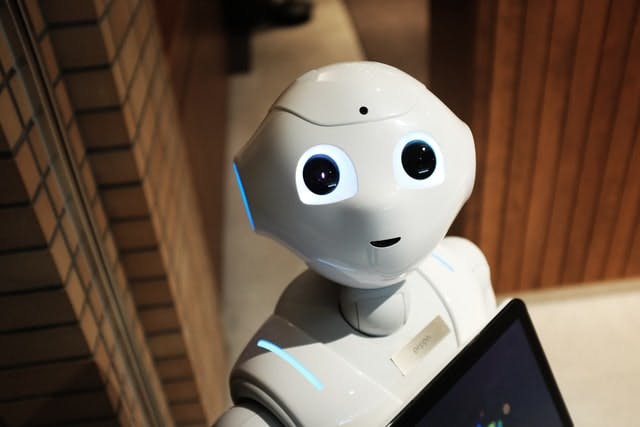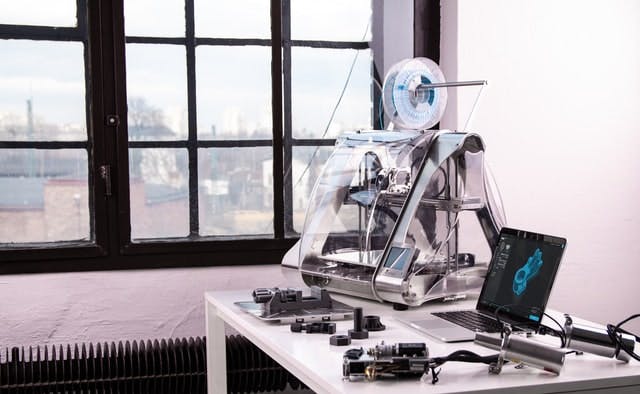Technological change has not fully exploited its potential to boost productivity and economic growth. It has driven up income inequality and fueled fears of a "robocalypse" and massive job losses from automation.
Commenting on the series of disruptions to our current way of life, David Bray, executive director of the People Center Internet Coalition, said : ''Whether we can control them for the benefit of the few remains to be seen, but we already see an increase in the affordability and availability of technologies that were only available in large nation states 20 years ago. The commercial sector outperforms technological development in nation states, meaning that any group that promotes disruptive technologies can be used, for better or worse, to influence global events. Whether the policies and institutions that govern markets can keep pace with technological change is changing the business world.
One could argue that technology continues to improve our lives by keeping us connected with information, entertainment, and each other. One could also argue the opposite: that, in a way, few devices and technologies have changed our lives and the world. There are few areas of our daily lives that are not affected by technology.
 Technology has helped society determine how people interact with each other on a daily basis. Despite its drawbacks, technology has become one of the best tools in the world, and we are fortunate to be surrounded by it. The most interesting facet of the ubiquity of technology is its ability to change our perspective on the world around us.
Technology has helped society determine how people interact with each other on a daily basis. Despite its drawbacks, technology has become one of the best tools in the world, and we are fortunate to be surrounded by it. The most interesting facet of the ubiquity of technology is its ability to change our perspective on the world around us.
The way technology affects society and communication is how we talk and communicate with each other worldwide. The way we think and interact with each other includes a technological component, even if we do not recognize it. With email and social networking, for example, you can spend Facetime with a person living on the other side of the world and hold video conferences where you can hold a conference.
Smartphones, the Internet, cloud computing and hundreds of other inventions have changed all facets of our lives. The Internet and digital technologies have influenced our physical and psychological development more than we might expect. The way technology affects us has advantages and disadvantages, and it all starts at a young age.
 The environment of technological change in recent decades has benefited from increased attention to micro- and macroempirical measurements, not pure theory. "There is little doubt that new technologies, led by the internet and digital technologies, have shaped our thinking in obvious and subtle ways, conscious and unintentional, beneficial and detrimental.
The environment of technological change in recent decades has benefited from increased attention to micro- and macroempirical measurements, not pure theory. "There is little doubt that new technologies, led by the internet and digital technologies, have shaped our thinking in obvious and subtle ways, conscious and unintentional, beneficial and detrimental.
Dealing with issues such as the energy paradox has broadened the scope of microempirical analysis to include a wide range of factors that influence people's choices regarding behavioral economics, environmental technology, and the diffusion of innovation. In recent years, environmental economists have also begun to examine the role of international technology diffusion in environmental technology. International dissemination is particularly important for problems such as climate change, where carbon emissions are rising rapidly in both developed and developing countries.
The fact is, however, that the Internet is not just a technology, but itself a cultural artifact. It brings culture to more people and makes it more accessible, and it has encouraged the rise of new forms of expression and art and the dissemination of knowledge. But it is also a tool that we use to interact with each other, which poses new challenges to privacy and security.
 The Internet has transformed the economy, education, government, health care and the way we interact with our loved ones and has become one of the most important drivers of social evolution. Information technology has proved to be a fundamental change in society, driving it from the industrial age to the connected age. While analog tools still have their place in some sectors, new technologies are gaining ground day by day, changing everything from our communication practices to those of young people.
The Internet has transformed the economy, education, government, health care and the way we interact with our loved ones and has become one of the most important drivers of social evolution. Information technology has proved to be a fundamental change in society, driving it from the industrial age to the connected age. While analog tools still have their place in some sectors, new technologies are gaining ground day by day, changing everything from our communication practices to those of young people.
Technology penetrates into every aspect of individual life and business. From the Industrial Revolution to space exploration, technology will redefine our future. With the development of artificial intelligence, IoT (Internet of Things ), 5G, cloud computing and big data analytics, the technology has the potential to change the future of the world and revolutionize it.
We are privileged to live in a time when science and technology are helping us to make our lives easier and to rethink our daily lives. The technologies to which we have been exposed and to which we have become accustomed have paved the way for innovation, but here is a list of current and future technologies that have the potential to change our lives.
Companies such as Virgin Galactic, SpaceX, Amazon and Blue Origin want to make it a reality and will one day provide us with the most expensive seats on spaceships to put us into orbit.
Technological development is the entire process of invention, innovation and dissemination of technologies and processes. Driven by disruptive technologies such as AI, big data and cloud, autonomous things (automated things) and the internet of autonomous things become more and more exciting and will continue to advance in terms of technological development. Autonomous things and the Internet of autonomous things are incredible technological developments.
 Technological change In the early days, technological change was often exemplified by linear models of innovation, but these were discarded and replaced by models of technological change that incorporate innovation at all stages of research and development and dissemination, and diffusion is now more widespread. In general, models of what technological change means are processes of innovation.
Technological change In the early days, technological change was often exemplified by linear models of innovation, but these were discarded and replaced by models of technological change that incorporate innovation at all stages of research and development and dissemination, and diffusion is now more widespread. In general, models of what technological change means are processes of innovation.
Today's sectors have policies that influence the speed and direction of technological change. Due to the cyclical nature of societies, technology is a factor that affects everyone else, starting with human societies, and that leads to the development of different technologies to meet society's needs. These technologies are changing the behaviour and functioning of societies, influencing and developing their economies, and creating the potential for greater demand for more technology, creating a cycle.
For example, advocates of the induced technological change hypothesis claim that policymakers can steer the direction of technological progress through the influence of relative factors such as price, and this shows how climate policies can influence fossil-fuel use when it becomes more expensive.

